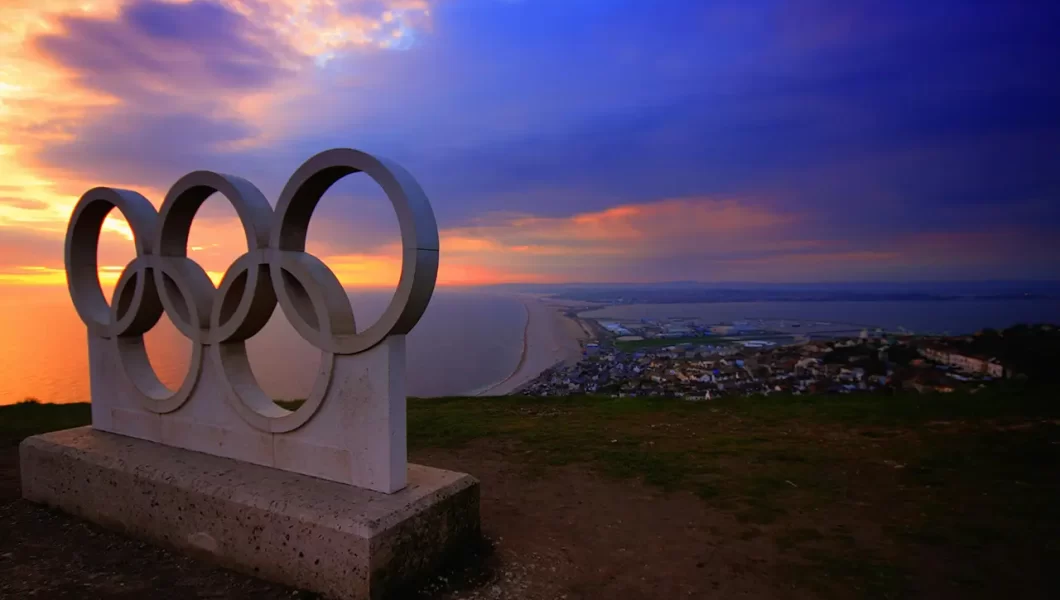The Olympic Games are a testament to human endurance, athleticism, and the pursuit of excellence. They have evolved from ancient rituals to the modern global spectacle we witness today. Let’s journey through their history, tracing their roots from ancient Greece to the contemporary international stage.
The Ancient Olympic Games
Origins in Ancient Greece
The origins of the Olympic Games date back to ancient Greece, around 776 BC. The Greeks held the Games in Olympia, a sanctuary site for their deities, especially Zeus. The ancient Olympics were part of a religious festival, and they played a crucial role in Greek culture and society.
Olympic Events
The ancient Olympic Games were quite different from the modern version. The primary events included:
- Stadion Race: A short sprint, roughly 200 metres.
- Diaulos: A double-stadion race, approximately 400 metres.
- Dolichos: A long-distance race, ranging from 7 to 24 stades (1400 to 4800 metres).
- Pentathlon: Consisting of five events – long jump, javelin throw, discus throw, stadion race, and wrestling.
- Wrestling and Boxing: Physical contests that emphasised strength and skill.
- Pankration: A no-holds-barred combat sport, combining wrestling and boxing.
Participants and Prizes
Only freeborn Greek men were allowed to participate in the ancient Olympics. Women were barred from competing and even from attending the games. Victors were awarded olive wreaths, symbolising their athletic prowess and honour.
Decline and End
The ancient Olympic Games continued for nearly 12 centuries. However, they began to decline under Roman rule. In 393 AD, the Roman Emperor Theodosius I, who had converted to Christianity, abolished the games as part of his efforts to suppress pagan festivals.
The Revival of the Olympic Games
The Vision of Pierre de Coubertin
The modern Olympics owe its revival to a Frenchman, Pierre de Coubertin. Inspired by the ideals of the ancient Olympics and the potential for international unity through sport, Coubertin proposed re-establishing the Games.
The First Modern Olympics
The Greeks held the first Olympic Games in Athens In 1896, symbolically linking the new games to their ancient heritage. Athletes from 14 countries competed in 43 events, including track and field, gymnastics, wrestling, and swimming.
Evolution of the Modern Olympic Games

Expansion and Inclusion
Since their revival, the Games have undergone significant changes. The number of participating countries and athletes has grown exponentially. The games have also expanded to include women athletes and a broader range of sports.
Winter Olympics
The Winter Olympic Games were introduced in 1924 in Chamonix, France, to showcase winter sports like skiing, ice hockey, and figure skating. These games have become a celebrated event in their own right, held every four years like the Summer Olympics.
The Paralympic Games
The Paralympic Games, which began in 1960, are a parallel event for athletes with disabilities. They have become a crucial part of the Olympic movement, promoting inclusivity and the spirit of competition.
Youth Olympics
The Youth Olympic Games were established in 2010 to engage younger athletes aged 14 to 18. These games aim to inspire young people to participate in sports and adopt the Olympic values of excellence, friendship, and respect.
Notable Olympic Moments
Jesse Owens – Berlin 1936
Jesse Owens, an African-American athlete, made history at the 1936 Berlin Olympics by winning four gold medals in track and field. His achievements challenged the Nazi ideology of racial superiority and left an indelible mark on Olympic history.
Nadia Comăneci – Montreal 1976
Romanian gymnast Nadia Comăneci achieved perfection at the 1976 Montreal Olympics by scoring the first-ever perfect 10 in gymnastics. Her performance captivated the world and set a new standard for the sport.
The Miracle on Ice – Lake Placid 1980
The US ice hockey team’s victory over the Soviet Union at the 1980 Winter Olympics is known as the “Miracle on Ice.” This underdog triumph became a defining moment in sports history and a symbol of national pride.
Usain Bolt – Beijing 2008 and Beyond
Jamaican sprinter Usain Bolt became a global icon by dominating the 100m and 200m sprints in three consecutive Olympics (2008, 2012, 2016). His electrifying speed and charismatic personality made him one of the most celebrated athletes of all time.
Challenges and Controversies
Political Boycotts
The Olympic Games have not been immune to political tensions. Several editions, such as the 1980 Moscow and 1984 Los Angeles games, were marred by boycotts due to geopolitical conflicts.
Doping Scandals
Doping has been a persistent issue in the Olympic Games, with several high-profile cases tarnishing the integrity of the competition. Efforts to combat doping continue to be a major focus for the International Olympic Committee (IOC).
Financial and Ethical Concerns
Hosting the Olympic Games is a massive financial undertaking. The costs associated with building infrastructure and ensuring security have led to concerns about the long-term economic impact on host cities. Additionally, there have been ethical issues related to displacement and labour rights.
The Spirit of the Olympics
The Olympic Charter
The Olympic Charter outlines the fundamental principles and values of the Olympic movement. It emphasises the role of sport in promoting peace, understanding, and international cooperation.
The Flame
The Olympic Flame, lit in Olympia and carried to the host city through a relay, symbolises the continuity between ancient and modern games. The lighting of the flame during the opening ceremony is a highlight of the Olympic tradition.
The Olympic Creed and Motto
The Olympic Creed, attributed to Pierre de Coubertin, states: “The most important thing in the Games is not to win but to take part.” The motto, “Citius, Altius, Fortius” (Faster, Higher, Stronger), encapsulates the spirit of striving for excellence.
Looking Forward
The future of the Games looks promising, with upcoming events planned in exciting locations. The Tokyo 2020 Summer Olympics, delayed to 2021 due to the COVID-19 pandemic, showcased the resilience and adaptability of the movement. Future games in Paris (2024), Milan-Cortina (2026), and Los Angeles (2028) promise to continue the legacy of this storied event.
Technological Innovations
Advancements in technology are expected to enhance the Olympic experience for athletes and spectators alike. Innovations in broadcasting, virtual reality, and sustainable infrastructure are set to play a significant role in future games.
Emphasis on Sustainability
Sustainability has become a key focus for the Olympic movement therefore, host cities are increasingly prioritising environmentally friendly practices, aiming to reduce the carbon footprint of the games and promote long-term ecological benefits.
Conclusion
The history of the Olympic Games is a fascinating journey through time, reflecting the evolution of sports, society, and global cooperation. From their ancient origins in Olympia to the grand international spectacle they are today, the Olympics continue to inspire and unite people around the world. As we look forward to future games, the Olympic spirit remains a powerful symbol of human potential and the enduring pursuit of excellence.








No Comments